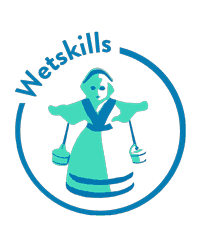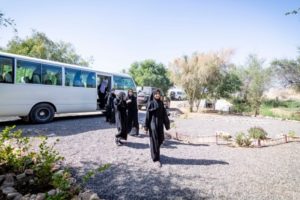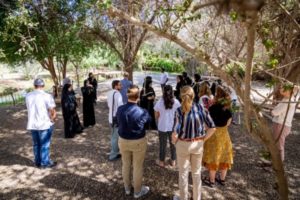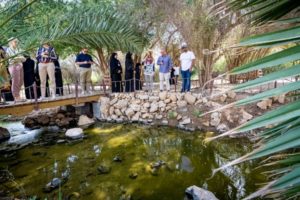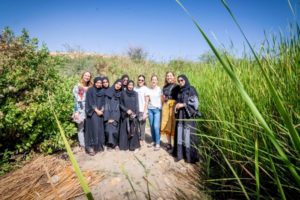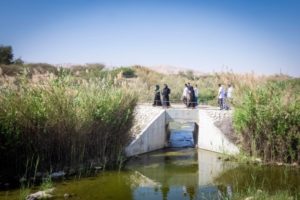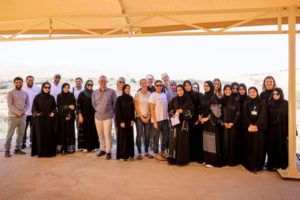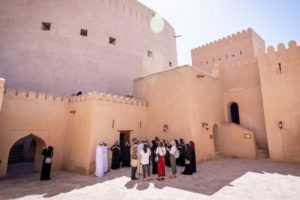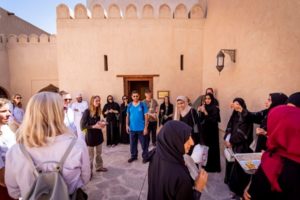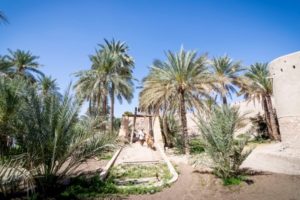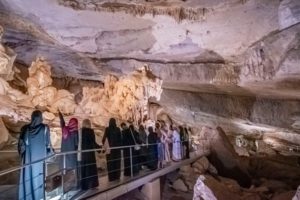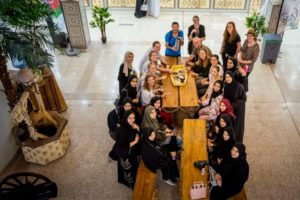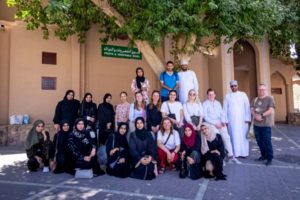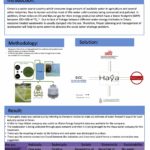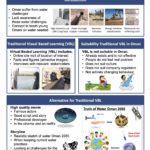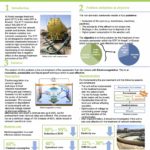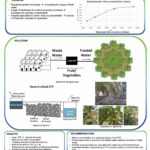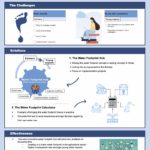
- This event has passed.
Wetskills-Oman 2020
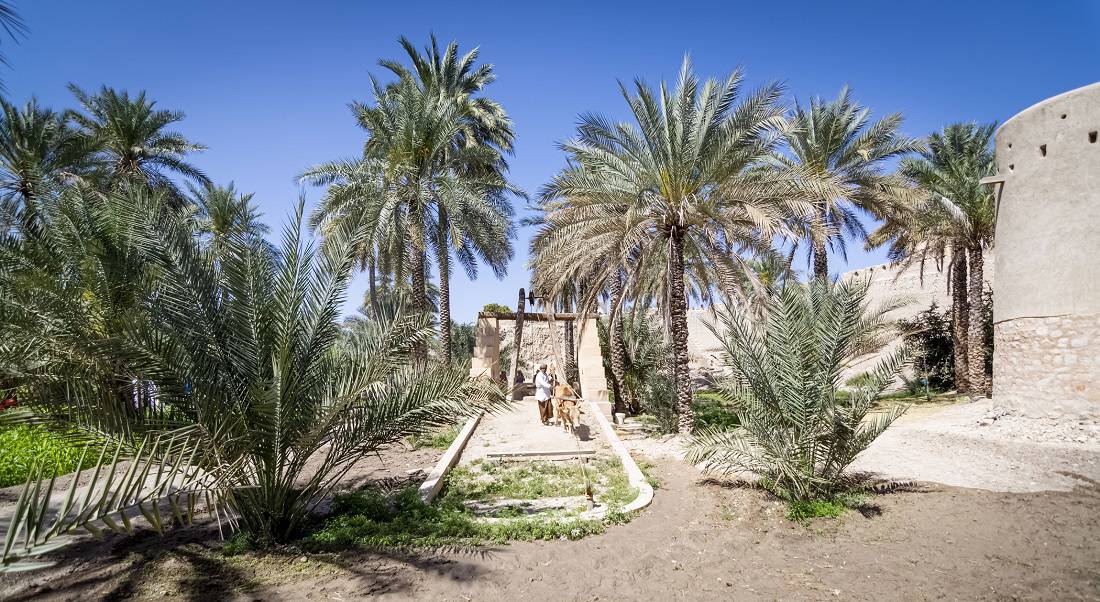

Third Wetskills in Oman successfully wrapped-up
Team Wave Integration won the third Wetskills Water Challenge in Oman. The team came up with a creative solution to kick-start a sustainable and self-supportive local Water Footprint Network in Oman and combining experience jobs for talented female graduates. The case was formulated by a consortium of Water Footprint Implementation, Oman Water Society, Water Footprint Network and Sultan Qaboos University. These organizations aim to establish a local network for awareness and capacity development including the implementation of the Water Footprint concept. Maartje Wadman, Junior Soil Advisor of Antea Group in The Netherlands, presenter of the pitch for the winning team: “Really would like to thank everyone who made this Wetskills edition still an unforgettable experience. I am sure that I will come back to Oman and that I will join another Wetskills edition.”
Coronavirus
The Coronavirus (COVID-19) affected the Wetskills programme in Oman. Despite all adaptive measures, the shortening of 2 days and the postpone of the 2nd International conference on Water Resources in Arid Areas where the Finals & Awarding Ceremony were planned, the programme went well, the participants were satisfied, and the results are promising. The Wetskills supervsiors Marcel Rompelman and Ahmed Al-Busaidi (SQU) managed to complete a quality programme in Muscat.
Read more: Press-release Wetskills-Oman 2020
Fore more information: Johan Oost, johan.oost@wetskills.com and/or Ahmed Al-Busaidi, ahmed99@squ.edu.om.
—
The 2020 central theme of Wetskills Events, celebrating 10 years of Wetskills:
‘VALUING FUTURE WATER LEADERS SHAKING THE WATER-ENERGY-FOOD COCKTAIL WITH THEIR INCLUSIVE & CATALYTIC CAPACITY’.
Event info

Movie Wetskills-Oman 2019
Follow Wetskills

[no_icons icon_pack=”font_elegant” fa_icon=”fa-facebook” fa_size=”fa-lg” custom_size=”30″ type=”normal” rotated_shape=”no” icon_shadow=”no” inner_border=”no” back_to_top_icon=”” link=”https://www.facebook.com/Wetskills-496271977097972″ anchor_icon=”” target=”_blank” icon_color=”#0076b2″ hover_icon_color=”#43dbbd” margin=”0px 12px 0px 0px” fe_icon=”social_facebook”] [no_icons icon_pack=”font_elegant” fa_icon=”fa-twitter” fa_size=”fa-lg” custom_size=”30″ type=”normal” rotated_shape=”no” icon_shadow=”no” inner_border=”no” back_to_top_icon=”” link=”http://twitter.com/wetskills” anchor_icon=”” target=”_blank” icon_color=”#0076b2″ hover_icon_color=”#43dbbd” margin=”0px 12px 0px 0px” fe_icon=”social_twitter”] [no_icons icon_pack=”font_elegant” fa_icon=”fa-instagram” fa_size=”fa-lg” custom_size=”30″ type=”normal” rotated_shape=”no” icon_shadow=”no” inner_border=”no” back_to_top_icon=”” link=”https://www.instagram.com/wetskills/” anchor_icon=”” target=”_blank” icon_color=”#0076b2″ hover_icon_color=”#43dbbd” margin=”0px 12px 0px 0px” fe_icon=”social_instagram”] [no_icons icon_pack=”font_elegant” fa_icon=”fa-twitter” fa_size=”fa-lg” custom_size=”30″ type=”normal” rotated_shape=”no” icon_shadow=”no” inner_border=”no” back_to_top_icon=”” link=”https://www.linkedin.com/groups/2949484″ anchor_icon=”” target=”_blank” icon_color=”#0076b2″ hover_icon_color=”#43dbbd” margin=”0px 12px 0px 0px” fe_icon=”social_linkedin”] [no_icons icon_pack=”font_elegant” fa_icon=”fa-youtube-square” fe_icon=”social_youtube” fa_size=”fa-lg” custom_size=”30″ type=”normal” rotated_shape=”no” icon_shadow=”no” inner_border=”no” back_to_top_icon=”” link=”https://www.youtube.com/channel/UCJmPNM9roCkR1uvgJMHqpvA” anchor_icon=”” target=”_blank” icon_color=”#0076b2″ hover_icon_color=”#43dbbd” margin=”0px 12px 0px 0px”]
Overview programme

The Finals

Field visits to Haya Water and Nizwa

Event Cases

Case 1: Turn Energy to Water and back. Creating a cross-sectoral communication
Case owner: Water Footprint Implementation
Oman is a water-scarce country, and energy-rich when looking at the large (fossil) energy resources. Energy in Oman is rather cheap and the main catalyst for its economy. Oman is also facing the world’s sustainability challenge of lowering the use of fossil energy and the transition to alternative energy production. But are stakeholders in Oman aware that this also affects the use of its valuable and scarce water? Various Ministries are invloved, e.g. Water, Energy, but also Internal affairs and Economy. Team challenge: How could the determination of the Water Footprint of Oman’s energy-mix, and the Carbon Footprint of Oman’s water use, contribute to cross-sectoral communication?
Case 2: Visual Problem Appraisal for Integrated Water Management in Oman
Case owner: Van Hall Larenstein
To achieve the ambitions of the National Water Resource Master Plan, it is envisioned that young Omani need to learn about Water management issues in their country. Involved institutions are exploring innovative learning strategies with a potential to stimulate water management knowledge and expertise with an interdisciplinary focus. In the search for a learning strategy that caters for an action-research orientation on water management, Wetskills Oman is exploring the potential of a series of film-based interviews for distance learning (Visual Problem Appraisal).
Case 3: Impact of NON-domestic wastewater
Case owner: Haya Water
Discharging Non-Domestic Wastewater to the sewerage system is an operational, environmental and safety risk. This can also cause odours, dangerous gases, accelerated corrosion, and sewer network blockage. It can affect the sewage treatment processes, and adversely impact bio-solids and effluent quality. Moreover, discharging Non-Domestic Wastewater to the sewer poses a health and safety risk to personnel working in and around the sewerage system, due to substances in the industrial wastewater or their reactions with other substances. This Case study aims to reduce the impact, and protect Haya Water assets from harmful disposal of Non-Domestic Wastewater into Haya Water sewage network and STP’s.
Final Pitch & Poster
Final Pitch & Poster
Final Pitch & Poster
Case 4: Chances for Agroforestry in Oman using treated effluent
Case owner: Sultan Qaboos University, department of Soil Sciences
Over 15 years ago a country study was done to investigate the possibilities of forests in Oman. The study showed it is critical to integrate planted trees and forests in more holistic approaches: Agroforestry. That means, to provide environmental services, stimulate biodiversity benefits, and meet people’s short and long-term needs. The creation of demonstration sites was suggested. What are the chances for Agroforestry in Oman? And in what way could treated effluent be used in Agroforestry?
Case 5: Sustainable embedding of the Water Footprint in Oman
Case owners: Sultan Qaboos University, Water Footprint Implementation, Oman Water Society & Water Footprint Network
Water Footprint has the potential to become a leading concept for quantifying freshwater use in Oman. The Water Footprint Network (WFN) established worldwide several hubs, each with a local network focusing on research, awareness raising and capacity building about the Water Footprint concept. In 2019, WFN and the Sultan Qaboos University discussed on the possibilities of creating a Water Footprint Hub in Oman, in collaboration with other partners. This hub should also focus on the implementation of projects to bring the Water Footprint Theory into practice in Oman. How could the Case Owners set-up a sustainable and self-supportive Water Footprint Hub in Oman?
Final Pitch & Poster
Final Pitch & Poster
Event Partners

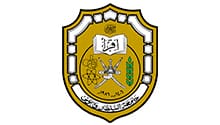
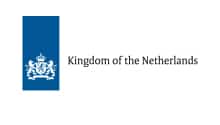

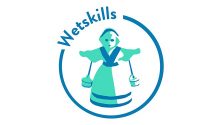
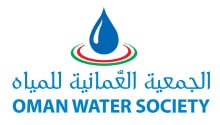
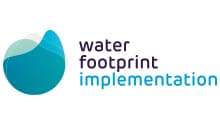
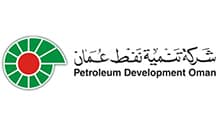
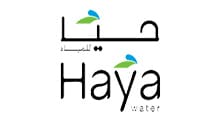
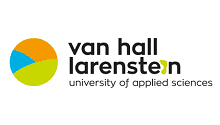
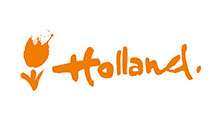
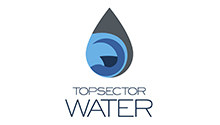
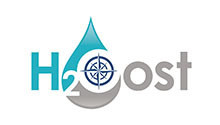
Event Blogs

